COVID-19 pandemic
COVID-19 Pandemic Response
Humanity needs leadership and
solidarity to defeat the coronavirus
The coronavirus COVID-19 pandemic is the defining global health crisis of our time and the greatest challenge we have faced since World War Two. Since its emergence in Asia late last year, the virus has spread to every continent except Antarctica. Cases are rising daily in Africa the Americas, and Europe.
Countries are racing to slow the spread of the disease by testing and treating patients, carrying out contact tracing, limiting travel, quarantining citizens, and cancelling large gatherings such as sporting events, concerts, and schools.
The pandemic is moving like a wave—one that may yet crash on those least able to cope.
But COVID-19 is much more than a health crisis. By stressing every one of the countries it touches, it has the potential to create devastating social, economic and political crises that will leave deep scars.
We are in uncharted territory. Many of our communities are unrecognizable from even a week ago. Dozens of the world’s greatest cities are deserted as people stay indoors, either by choice or by government order. Across the world, shops, theatres, restaurants and bars are closing.
Every day, people are losing jobs and income, with no way of knowing when normality will return. Small island nations, heavily dependent on tourism, have empty hotels and deserted beaches. The International Labour Organization estimates that 25 million jobs could be lost.
UNDP response
Every country needs to act immediately to prepare, respond, and recover. The UN system will support countries through each stage, with a focus on the most vulnerable.
Drawing on our experience with other outbreaks such as Ebola, HIV, SARS, TB and malaria, as well as our long history of working with the private and public sector, UNDP will help countries to urgently and effectively respond to COVID-19 as part of its mission to eradicate poverty, reduce inequalities and build resilience to crises and shocks.
“We are already hard at work, together with our UN family and other partners, on three immediate priorities: supporting the health response including the procurement and supply of essential health products, under WHO’s leadership, strengthening crisis management and response, and addressing critical social and economic impacts.” UNDP Administrator, Achim Steiner
UNDP Timor-Leste' response
Coronavirus became a major issue in Timor-Leste in early March 2020. The UNDP was on the front foot and contributed to the March 12 launch of the government’s National Prevention of Coronavirus Campaign by printing over 40,000 brochures on virus prevention and hygiene in under 48 hours for distribution across all municipalities.
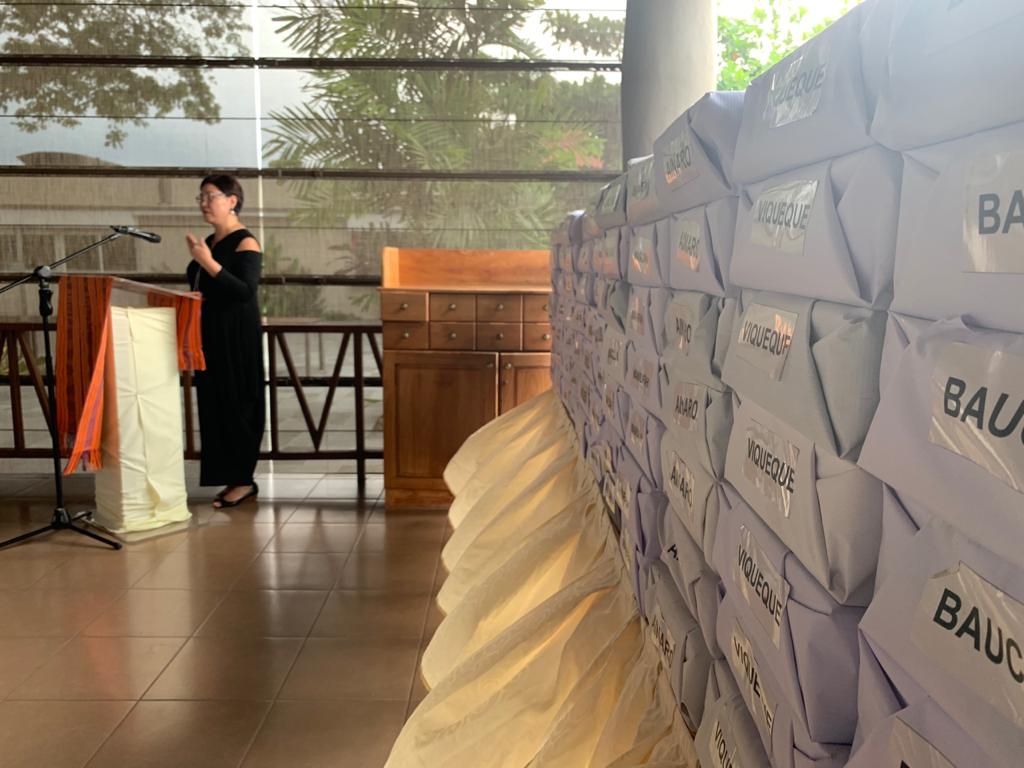
This awareness campaign continued with public messaging on social media. This includes videos produced with the WHO and UNICEF on Covid prevention; the role and rights of children; and a children’s hand washing song.
UNDP staff rapidly shifted to working from home, and attending the office on a rotational roster only to decrease density.

Handover ceremony at Dili International Airport, Friday May 29 marked the arrival of Timor-Leste’s first shipment of emergency medicines.
Most significantly, on April 1 the UNDP signed a $5.7 million agreement with the government of Timor-Leste to procure COVD-related equipment as well as non-COVID-19 essential medicines and commodities. The first load of these supplies arrived in late May.
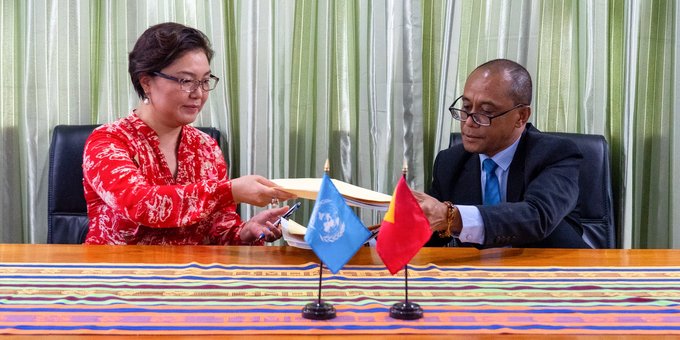
Signing agreement between UNDP and the government of Timor-Leste to procure COVD-related equipment
While UNDP projects halted large gatherings, they adapted program activities, to limit domestic travel and ensuring cash is available to continue necessary operations. Additionally, the UNDP launched a comprehensive socio-economic impact assessment that will survey over 400 households on how the virus has affected them.
Through its youth and entrepreneur networks, the UNDPs Accelerator Lab and Knua Juventude Fila Liman have also kick-started large-scale domestic hand sanitiser production using 100% local ingredients and knowledge. KJFL has also led the way with 3D-printing over 500 face shields for front-line health workers.
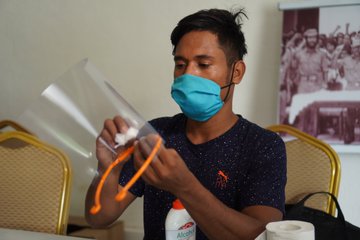
UNDP staff also assisted with distribution of over 600 meal packages to victims of flooding who were severely impacted by the restrictions on work and movement during the virus response.
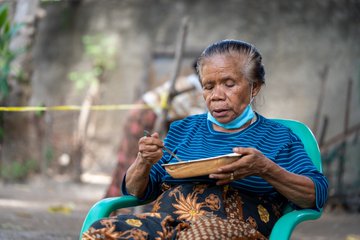
Other issues such as domestic violence, influenced by the lockdowns and response to the virus, have also been of concern to the UNDP. The UNDP Spotlight team has coordinated with the national police vulnerable persons unit to produce communications materials on gender based violence during social isolation and quarantine.
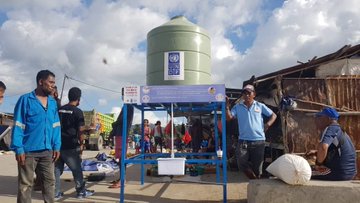
The UNDP Decentralisation Project’s partnership with the Ministry of State Administration has also allowed the UNDP to assist information and materials distribution to rural communities also. This has included the construction of over 70 hand-washing stations in cooperation with the Coastal Resilience Building Project’s networks.

 Locations
Locations